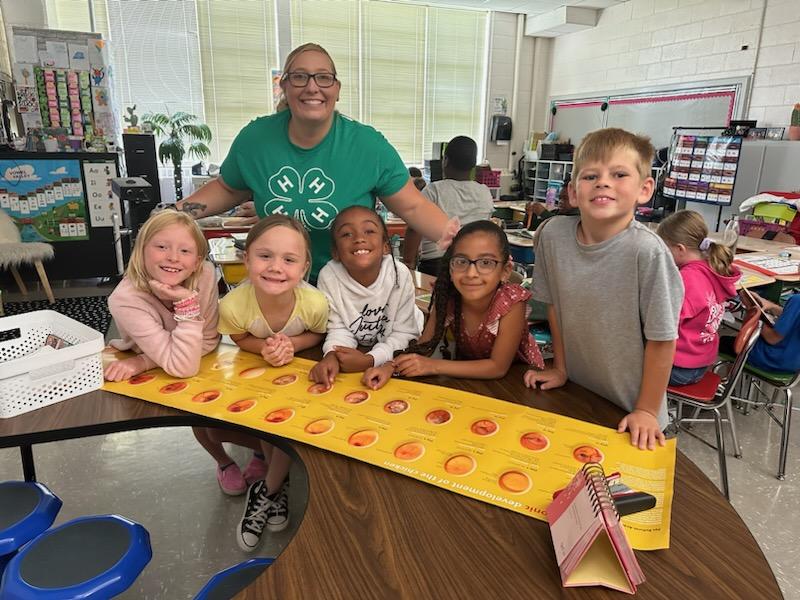Second Graders Hatch Chicks in Their Classrooms
go.ncsu.edu/readext?977231
en Español / em Português
El inglés es el idioma de control de esta página. En la medida en que haya algún conflicto entre la traducción al inglés y la traducción, el inglés prevalece.
Al hacer clic en el enlace de traducción se activa un servicio de traducción gratuito para convertir la página al español. Al igual que con cualquier traducción por Internet, la conversión no es sensible al contexto y puede que no traduzca el texto en su significado original. NC State Extension no garantiza la exactitud del texto traducido. Por favor, tenga en cuenta que algunas aplicaciones y/o servicios pueden no funcionar como se espera cuando se traducen.
Português
Inglês é o idioma de controle desta página. Na medida que haja algum conflito entre o texto original em Inglês e a tradução, o Inglês prevalece.
Ao clicar no link de tradução, um serviço gratuito de tradução será ativado para converter a página para o Português. Como em qualquer tradução pela internet, a conversão não é sensivel ao contexto e pode não ocorrer a tradução para o significado orginal. O serviço de Extensão da Carolina do Norte (NC State Extension) não garante a exatidão do texto traduzido. Por favor, observe que algumas funções ou serviços podem não funcionar como esperado após a tradução.
English
English is the controlling language of this page. To the extent there is any conflict between the English text and the translation, English controls.
Clicking on the translation link activates a free translation service to convert the page to Spanish. As with any Internet translation, the conversion is not context-sensitive and may not translate the text to its original meaning. NC State Extension does not guarantee the accuracy of the translated text. Please note that some applications and/or services may not function as expected when translated.
Collapse ▲ Second grade teachers across Cleveland County integrate the 4-H Classroom Embryology Project into their curriculum to engage students in learning about the science of life.
Second grade teachers across Cleveland County integrate the 4-H Classroom Embryology Project into their curriculum to engage students in learning about the science of life.
N.C. Cooperative Extension supports these teachers by securing fertilized eggs (courtesy of project partner Case Farms), loaning incubators, brooder boxes and supplies, making classroom teaching visits, fielding questions, and finding farm placements for the newly hatched chicks.
Three elementary schools (Bellwood, Union Elementary, and Fallston) participated in the 4-H Classroom Embryology Project during Fall 2023. More than 280 children learned about the avian life cycle in real time by incubating chicken eggs. The students received instruction on what an incubator is and how it works. They also learned how to monitor the incubator’s temperature and humidity and the importance of turning eggs daily during the incubation process. The classrooms were buzzing with excitement each time Cleveland County 4-H Agent Carey Stewart walked through the door. She taught the students about candling an egg beginning on day 14 in order to observe the growth and development of the embryo inside.
Teachers were provided embryology curriculum, information packets containing student worksheets, and ongoing email and telephone support throughout the 3-week project. Offered each Spring and Fall, the 4-H Classroom Embryology Project is favorite program of teachers and a highlight or the school year for their students.




